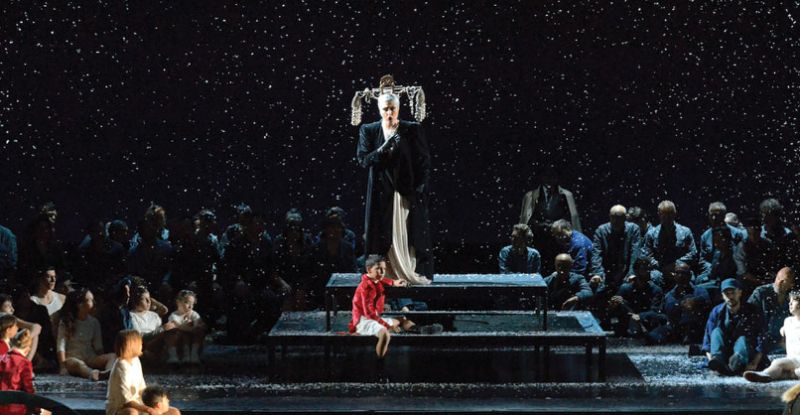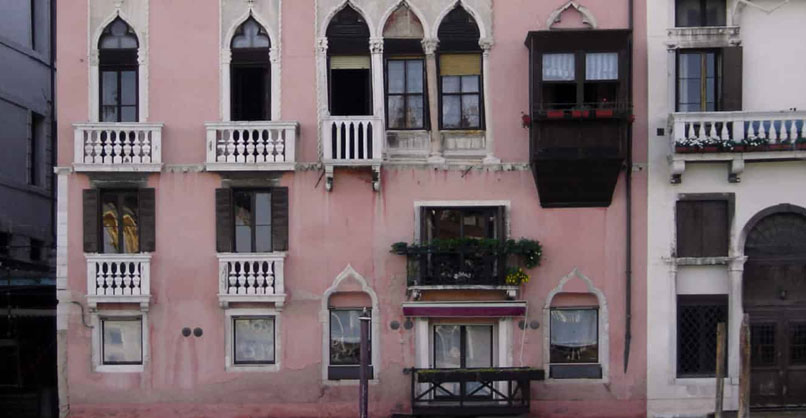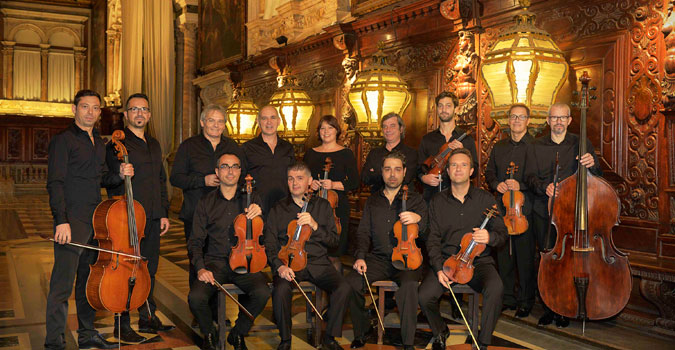- Venue's Capacity: 1000
A bar is available in the Theater offering few things to eat during the interval.
You may also visit the theater during the day, audioguides are available in english. During day time, the bar aslo serves complete lunch in the beautiful Salle Apolinee.
In the history of opéra, the city of Venice occupies an eminent position. In 1637, here in the doges city, the first public opéra theater was opened to paying members of the public. This was a turning point, breaking with the tradition of court performances, and the opéra house in Venice soon attracted a new audience, presenting works that blatantly alternated scènes ofhigh comedy and high tragedy, butfocusing more importantly on the "prima donna" and soon the "primo uomo". Le. the castrato. A number of theaters subsequently appeared in Venice and in the seventeenth century, the works ofHândel and Alessandro Scarlatti were public triumphs.
In 1787, "La Nobile Società", the owner of a theater that had recently been expropriated, decided to build a new hall designed to please both the eye and the ear. The élégant building, with two main entrances, one on the canal and the other on a piazza, underwent various changes over the years, particularly after the fire in 1836, but, like the Phoenix whose name it bears, it rose from the ashes.
On the night of 29 January 1996, for the second time in its history, fire devastated the theatre. The interior was completely destroyed and only the foundations survived. The theatre is totally reconstructed “the way it was, where it was” and re-open for a week of inauguration on 14 December 2003. The Return of the great La Fenice theatre is officaly in November 2004 with La Traviata, the opera by Verdi which premiered in this exact theatre.
Agreement is universal as to the future of the historié theater which is not only acclaimed as one of the most handsome in Italy, but also holds a long and brilliant record for premiering new works. From Rossini with TANCREDI in 1813 to Luigi Nono with INTOLLERANZA in 1960, ail the great Italian composers have seen their finest works presented here. Verdi premiered five of his opéras to Venetian audiences at La Fenice — ERNANI, ATTILA, RIGOLETTO, LA TRAVIATA and SIMON BOCCANEGRA, and ever since the Italian premières of RIENZI and the RING CYCLE by Wagner, La Fenice hasfeatured many international premières, including three major 20th century opéras: Stravinsky's RAKE'S PROGRESS (1951), Britten's TURN OF THE SCREW (1954) and Prokoflev's THE FIERY AN GEL (1955).











